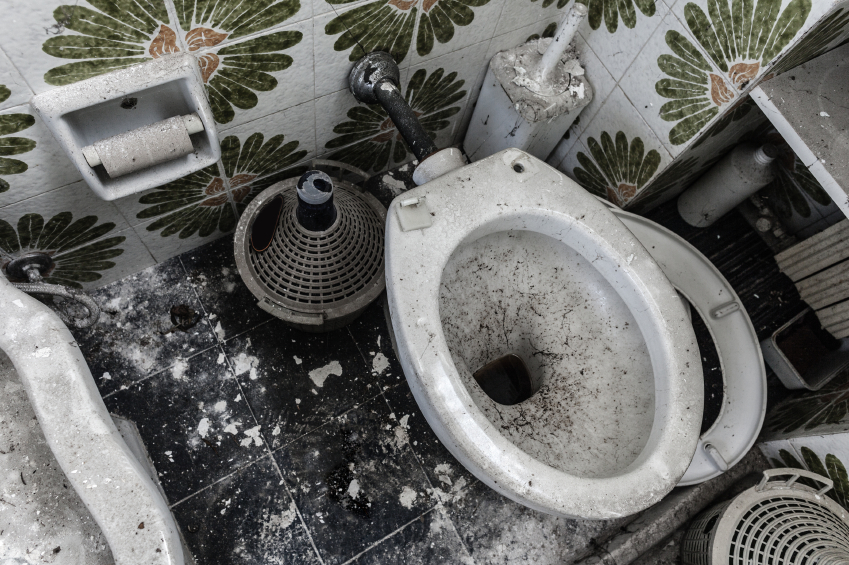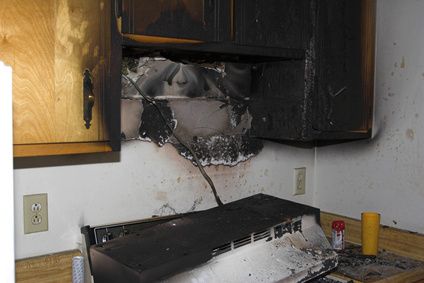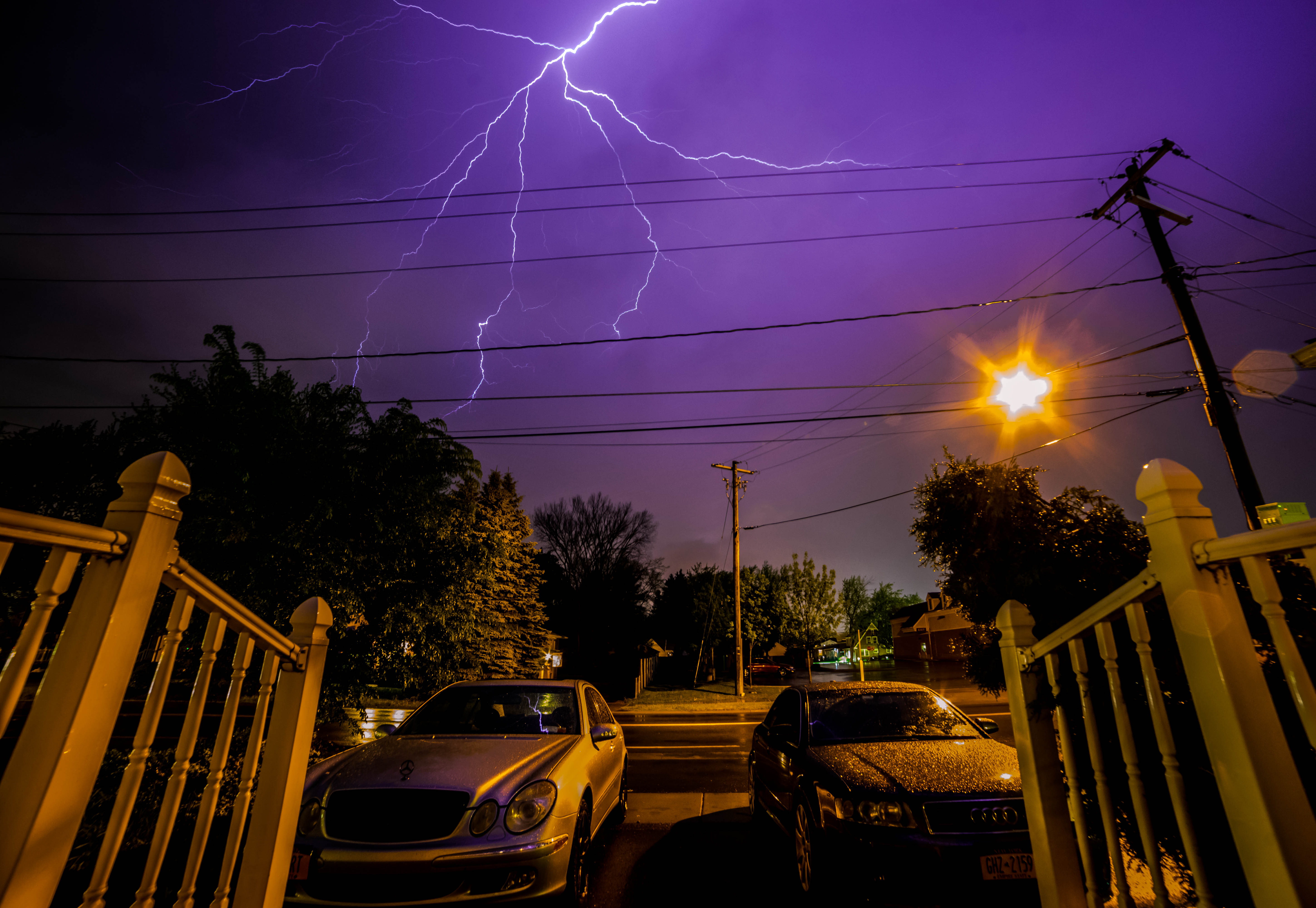Gas Leak Safety Guide: How to Detect, Prevent, and Respond at Home
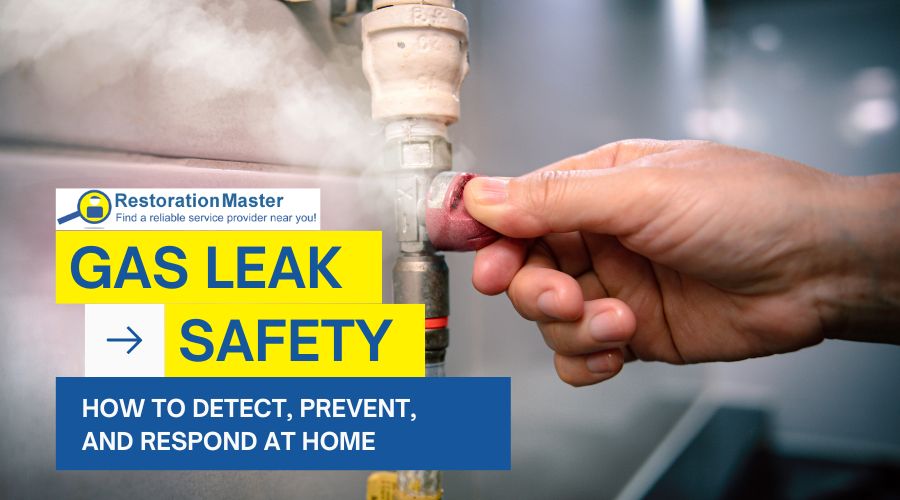
Summary: Gas leaks can be silent and dangerous—but knowing the warning signs could save your home and your life. In this blog, we break down how to detect gas leaks at home, what causes them, and what to do if you suspect one.
Natural gasNatural gas is a flammable fossil fuel composed mainly of me... More powers millions of homes across the U.S.—but while it’s efficient and convenient, it’s not without risk. Gas leaks are silent threats that can turn deadly if unnoticed. Unfortunately, too many homeowners rely solely on their sense of smell or wait until they feel dizzy to take action.
This guide isn’t just another list of detection methods—it’s a 2025 homeowner’s manual to understanding, preventing, and managing gas leaks, with up-to-date recommendations, emerging technologies, and home safety strategies you won’t find anywhere else.
Thankfully, there are ways to detect a leak if it occurs, in order to save yourself from fire or any other kinds of damages like smoke and soot.
What Is Natural Gas, and Why Is It a Hidden Danger in Homes?
Natural gasNatural gas is a flammable fossil fuel composed mainly of me... More is a colorless, odorless, and invisible fuel composed mainly of methane. It is widely used in residential settings for its efficiency, reliability, and affordability. Because it naturally has no smell, gas companies add mercaptan, a sulfur-based compound with a distinct rotten egg odorAn odor is a smell, often detectable by the human nose, whic... More, to help detect leaks.
However, it’s important to know that you can’t always rely on smell alone to detect a leak. Small, low-flow leaks—especially common in older appliances—can go unnoticed for weeks, posing significant explosion and health hazards.
Common household uses for natural gas:
- Gas stoves and ovens
- Water heaters
- Furnaces and boilers
- Fireplaces (gas logs)
- Outdoor grills and patio heaters
- Backup generators
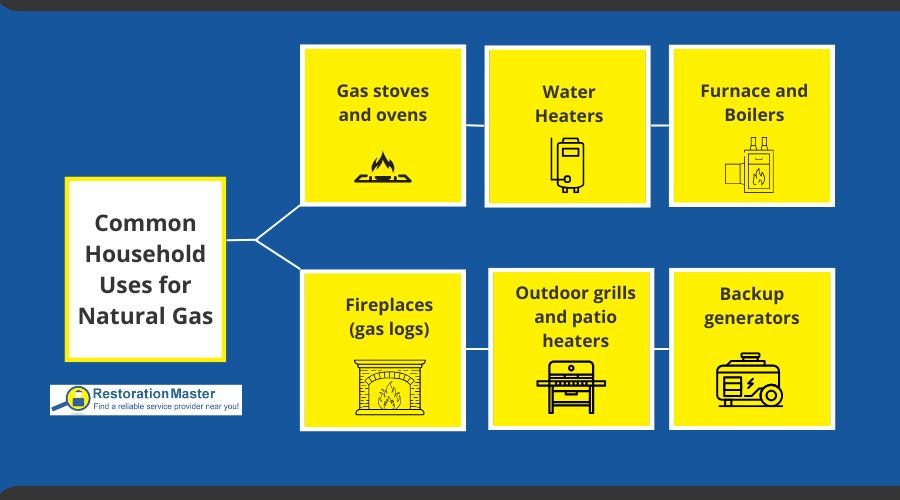
Why Are Natural Gas Leaks Dangerous?
Natural gasNatural gas is a flammable fossil fuel composed mainly of me... More leaks are extremely dangerous due to two primary risks:
1. Health Hazards
In confined spaces, leaked gas displaces oxygenOxygen is a chemical element essential for combustion and li... More, increasing the risk of asphyxiation.
According to the CDC, nearly 50,000 people are sent to the ER annually for carbon monoxide poisoning, often caused by malfunctioning gas appliances.
2. Fire and Explosion Risk
Natural gasNatural gas is a flammable fossil fuel composed mainly of me... More is highly flammable.
Leaks near open flames or electrical sparks can cause devastating explosions or uncontrollable fires.
How Do Gas Leaks Happen?
Gas leaks aren’t always dramatic—they often happen quietly, and many homeowners don’t realize there’s an issue until it becomes dangerous. In most cases, the leak starts because something in the system has aged, shifted, or been installed incorrectly. Here are a few of the most common causes:
- Old or corroded pipes – If your home is more than a couple decades old and the gas lines have never been updated, there’s a good chance they’re wearing down. Corrosion, rustRust is a reddish-brown oxide that forms on iron or steel du... More, and general wear and tear can create small leaks that go unnoticed until they become serious.
- Damage from renovations or moving appliances – Something as simple as shifting a stove or redoing your kitchen can jostle a gas connection or strain a pipe. It doesn’t take much to crack a fitting or loosen a valve.
- Natural disasters – Earthquakes, floods, and severe storms can shift the ground or cause structural movement that puts stress on gas lines—especially ones that run underground or through walls.
- Worn-out appliances – Over time, gas-powered appliances like water heaters, furnaces, and ranges can develop cracks in their hoses or have valves that no longer seal properly. These small failures are some of the most common sources of household gas leaks.
- Poor installation – Unfortunately, not every job is done right. We see plenty of leaks that trace back to unlicensed or inexperienced installers who didn’t tighten connections properly or skipped important safety checks.
Pro Tip From Our Restoration Expert: If your home is 20+ years old and no one’s ever taken a close look at your gas system, it’s time to schedule an inspectionInspection is the careful examination and assessment of a pr... More. It’s quick, relatively inexpensive, and could prevent a major problem down the road.
Can You Smell a Gas Leak?
Yes—but not always.
Mercaptan provides a warning odorAn odor is a smell, often detectable by the human nose, whic... More, but:
- If you’re sick, congested, or a smoker, your sense of smell may be dulled.
- Some people suffer from olfactory fatigue, meaning they adapt to the smell over time.
- Leaks in poorly ventilated or concealed areas (e.g., behind appliances) may go unnoticed.
⚠️ Key Insight: Studies show that micro-leaks—which often don’t produce enough smell to be noticeable—are more common in homes than previously believed. That’s why smart detectors and routine inspections are critical in 2025 and beyond.
What Are the Most Reliable Ways to Detect a Gas Leak in Your Home?
Gas leaks are a significant hazard in homes, much like other common household dangers. The leaks can be detected through various methods, primarily relying on the senses, technology, or a combination of both:
Smell of Rotten Eggs
The mercaptan’s distinct and foul odorAn odor is a smell, often detectable by the human nose, whic... More helps people detect natural gasNatural gas is a flammable fossil fuel composed mainly of me... More coming through the pipelines. Upon smelling this sulfur-like odorAn odor is a smell, often detectable by the human nose, whic... More inside their home or in the garage, homeowners can be certain that a gas leak is present. Seeing a white cloud in standing water can also signal a potential problem.
Hissing Sounds
Other signs of a natural gasNatural gas is a flammable fossil fuel composed mainly of me... More leak include hearing hissing or whistling sounds. The gas line may emit noise. Homeowners who know where the gas pipe is should focus on listening for unusual sounds. However, relying only on auditory cues is not entirely reliable.
Visible Damage to Gas Pipe
The gas line connection may be damaged when a natural gasNatural gas is a flammable fossil fuel composed mainly of me... More leak occurs. A hole or a crack may appear in the pipe, through which the natural gasNatural gas is a flammable fossil fuel composed mainly of me... More escapes and produces the hissing sounds. In such cases, turn off the gas line and notify the utility company.
Dead Plants
Houseplants that are well-cared for can be revealing when a gas leak occurs. As the oxygenOxygen is a chemical element essential for combustion and li... More levels drop and the level of natural gasNatural gas is a flammable fossil fuel composed mainly of me... More increases, healthy houseplants may suddenly perish. The vegetation dies as their roots become poisoned by the natural gasNatural gas is a flammable fossil fuel composed mainly of me... More.
Health Symptoms
During a gas leak, pets, children, people with asthma, and older adults may be the first to show symptoms of carbon monoxide poisoning. They may lose consciousness upon breathing in extremely high levels of natural gasNatural gas is a flammable fossil fuel composed mainly of me... More. Without immediate medical attention, death can result.
Electronic Instruments
If you suspect a doubt and hire professionals, they may utilize electronic sensors to detect gas concentrations in the air. These instruments provide precise readings and can locate leaks even in small amounts.
Gas Utility Inspection
Gas companies routinely inspect their infrastructure for leaks using specialized equipment like leak survey vehicles or handheld devices.
Natural Gas Leak Detector
The most dependable way to detect a gas leak inside the home is to use a natural gasNatural gas is a flammable fossil fuel composed mainly of me... More leak detector. A wide range of options are available to the homeowner, including those that measure gas levels and sound an alarm when a gas leak is detected. Homeowners should be proactive, routinely inspecting the home and maintaining appliances that use gas, including the furnace, stove, fireplace, and various equipment. Spaces that are exposed to natural gasNatural gas is a flammable fossil fuel composed mainly of me... More, such as around the generator, should be adequately ventilated to prevent issues.
How to Check for Gas Leak with Soapy Water?
This is the best DIY approach of using soapy water is a simple yet effective method for detecting gas leaks. Here’s how it works:
- Prepare the Soapy Water SolutionA solution is a homogeneous mixture of two or more substance... More: Mix a small amount of dish soap or liquid detergent with water in a spray bottle or bowl. The solutionA solution is a homogeneous mixture of two or more substance... More should be about 50% water and 50% soap.
- Turn Off Gas Appliances: Before you begin, confirm that all gas appliances in your home are turned off, including stoves, water heaters, and furnaces. Also, extinguish any open flames or sources of ignition.
- Locate the Gas Lines: Identify the areas where gas lines are present. These may include connections to appliances, gas meters, and gas pipes running along walls or floors.
- Apply the Soapy Water: Spray or apply the soapy water solutionA solution is a homogeneous mixture of two or more substance... More onto the areas where you suspect a gas leak. Focus on joints, connections, and valves. If you don’t have a spray bottle, you can use a brush or spongeA sponge is a porous material used to absorb liquids or clea... More to apply the solutionA solution is a homogeneous mixture of two or more substance... More.
- Watch for Bubbles: As the soapy water comes into contact with the gas leak, it will form bubbles. These bubbles indicate the presence of escaping gas. Pay close attention to any bubbles forming around fittings, valves, or joints.
- Take Precautions: If you detect a gas leak, do not attempt to fix it yourself. Turn off the gas supply to your home immediately and contact your gas utility provider or a qualified professional to repairRepair is the act of fixing or restoring damaged property, m... More the leak.
- Repeat if Necessary: If you don’t find any leaks initially, but you still suspect a problem, you can repeat the process in different areas or at different times when gas appliances are in use.
What New Gas Leak Detection Technologies Are Available in 2025?
Smart Natural Gas Detectors (Wi-Fi Enabled)
Today’s detectors aren’t just alarms—they’re smart home devices that:
- Send instant alerts to your phone
- Offer continuous methane level monitoringMonitoring is the ongoing observation and measurement of con... More
- Integrate with systems like Google Nest, Alexa, or Ring
- Provide historical data and leak trends
- Multi-Gas Sensors
Advanced detectors can now sense:
- Methane (CH4) – Primary component of natural gasNatural gas is a flammable fossil fuel composed mainly of me... More
- Propane – Found in rural and backup systems
- Carbon monoxide (CO) – Byproduct of incomplete combustion
Do Carbon Monoxide Detectors Detect Natural Gas?
No. Carbon monoxide detectors only detect CO gas—not methane.
Natural gasNatural gas is a flammable fossil fuel composed mainly of me... More requires its own detector. Ideally, every home should have both:
| Detector Type | Detects | Install Location |
|---|---|---|
| CO Detector | Carbon monoxide | Near sleeping areas |
| Natural GasNatural gas is a flammable fossil fuel composed mainly of me... More Detector | Methane / Propane | Near stoves, furnaces, basements, and garages |
Where to Install Gas Leak Detectors for Maximum Protection
- Near gas water heaters
- Inside the kitchen, near the stove
- Close to gas furnaces and fireplaces
- In garages or utility rooms with generators or gas dryers
- Basements or crawlspaces where old piping may run
Pro Tip From Our Restoration Expert: Methane is lighter than air. Mount detectors near the ceiling or upper walls for best results.
What Should You Do Immediately If You Suspect a Gas Leak?
If you even suspect there might be a gas leak in your home, don’t wait—take it seriously and act fast. Here’s what to do:
- Get everyone out immediately. Don’t stop to grab anything—just leave the house as quickly and calmly as possible.
- Avoid using anything electrical. That includes light switches, phones, garage door openers, and even flashlights. A single spark can ignite gas in the air.
- Don’t open or close doors or windows. It might feel instinctive to air things out, but moving air or slamming a door can cause static or mechanical sparks.
- Once you’re at a safe distance, call for help. Dial 911 and your local gas utility company to report the leak. Let them know exactly what you smelled or heard and where it happened.
- Wait for the all-clear from professionals. Do not go back inside until emergency responders or utility workers say it’s safe. Even if things seem fine, it’s not worth the risk.
What If the Gas Leak Caused a Fire?
Gas leaks are a leading cause of residential fires and explosions. After the flames are extinguished, your home may be uninhabitable. That’s when you need certified fire damage restoration experts.
What restoration professionals do:
- Secure and board-up damaged property
- Clean smoke, sootSoot is fine black particles composed of carbon and other ma... More, and chemical residueResidue is any leftover material, such as soot, dust, or che... More
- Remove odors from porousPorous describes a material that contains small openings or ... More materials
- MitigateTo mitigate is to reduce or limit the severity of damage, ri... More water damage from fire hoses
- RepairRepair is the act of fixing or restoring damaged property, m... More and reconstruct damaged structural elements
RestorationRestoration is the process of returning a property to its pr... More teams don’t just clean—they restore your property to its pre-loss condition and handle insurance documentation.
Fresh Safety Tips for 2025: Stay Ahead of Gas Leak Risks
- Schedule annual gas line inspections through your utility or licensed plumber.
- Keep a fire extinguisher near major appliances—but only use it if trained and safe to do so.
- Upgrade to flexible gas lines (corrugated stainless steel tubing) for better earthquake resistance.
- Clean behind gas stoves and dryers monthly—lint and grease can increase fire risk.
- Use surge protectors for electronics to minimize ignition risk in case of leaks.
- Install low-level natural gasNatural gas is a flammable fossil fuel composed mainly of me... More sensors in bird aviaries—birds are more sensitive and can act as an early warning system.
Protect Your Home and Family from Gas Leaks
Gas leaks are silent but deadly. Whether it’s a small leak behind your stove or a ruptured gas line beneath your lawn, early detection can mean the difference between inconvenience and catastrophe.
✅Action Checklist:
- Install both natural gasNatural gas is a flammable fossil fuel composed mainly of me... More and CO detectors
- Perform a quarterly gas leak inspectionInspection is the careful examination and assessment of a pr... More
- Upgrade aging appliances and gas lines
- Know your gas shut-off valve location
- Work only with licensed technicians
Need fire damage help after a gas leak?
Call your local RestorationMaster expert team—available 24/7 to restore, repairRepair is the act of fixing or restoring damaged property, m... More, and rebuild.
Frequently Asked Questions
How long can you have a gas leak without knowing?
A gas leak can go undetected for days, weeks, or even months—especially if it’s small, slow, or located in an area with poor ventilationVentilation is the process of exchanging or circulating air ... More. Many leaks are discovered only when utility bills rise unexpectedly, appliances stop working properly, or health symptoms begin to appear.
Because natural gasNatural gas is a flammable fossil fuel composed mainly of me... More is odorless, utility companies add mercaptan, a chemical that smells like rotten eggs, to help detect leaks. However, if you’re desensitized to the smell, the leak is underground, or you’re away from home often, you might not notice it right away.
What smell can be mistaken for gas?
Natural gasNatural gas is a flammable fossil fuel composed mainly of me... More itself is odorless, but utility companies add a chemical called mercaptan to give it a distinct rotten egg or sulfur-like smell. However, several other household odors can easily be mistaken for a gas leak:
- Sewer or drain gas – A buildup of methane from dry P-traps or blocked vents can smell strikingly similar to natural gasNatural gas is a flammable fossil fuel composed mainly of me... More.
- Rotten food – Spoiled produce, especially onions, garlic, or eggs, can emit sharp, sulfur-like odors.
- Sulfur-rich well water – Homes on private wells may notice a strong, eggy odorAn odor is a smell, often detectable by the human nose, whic... More from sinks or taps that’s often confused with a gas leak.
- Heating fuel or propane – These fuels are chemically treated with similar additives, making them smell like natural gasNatural gas is a flammable fossil fuel composed mainly of me... More when leaking.
- Decomposing pests – A dead rodent in the walls or attic can produce an intense odorAn odor is a smell, often detectable by the human nose, whic... More that’s sometimes mistaken for a gas leak.
If something smells off and you even suspect it might be gas, don’t try to diagnose it yourself. Evacuate the area and call your gas provider or emergency services immediately. It’s always better to be overly cautious when it comes to gas.
What if I smell gas but nobody else does?
If you smell gas and others don’t, it doesn’t necessarily mean you’re imagining it. People have different sensitivities to odors—some may detect gas additives like mercaptan at much lower concentrations than others.
Still, you should always take your suspicion seriously:
-
- Leave the area immediately.
- Avoid using electronics, lights, or appliances.
- Call your gas utility provider or 911 from a safe location.
- Don’t try to “test” the smell yourself or wait for someone else to confirm it.










